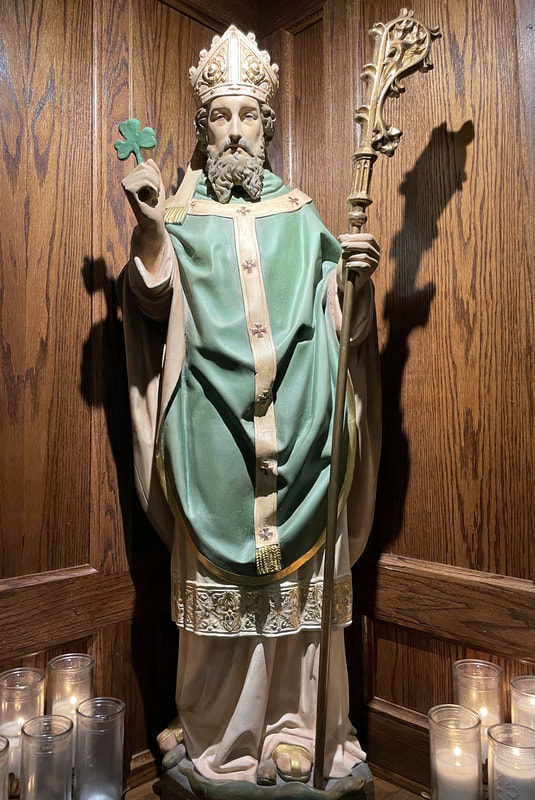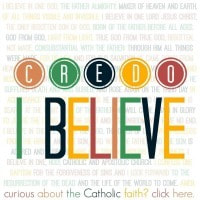|
* first published on 3/26/2022 at www.catholic365.com
If you happened to catch a bit of the televised interview of Ukrainian President Zelensky, given just days after the invasion of Russia, you may have heard him say something to this effect: Interviewer: President Zelensky, is this effort for freedom worth it? President Zelensky: I hope the western countries have seen and understand just how important freedom is to the Ukrainian people. We are not just talking about it, we are giving our lives for it. It was a moving and grave moment, asking those of us in the west to think more seriously about this thing we call "freedom," and indeed, ask ourselves just what we would be willing to sacrifice to defend it. So what is "Freedom" anyway? I asked this very question to a group of parishioners just a couple of weeks ago. We had just finished watching the first episode of "The Quest", a 5 part documentary-style video series produced by the University of Dallas, and we were discussing it. "Freedom is the ability to choose, " one fellow answered. "Freedom is being able to make your own decisions and live how you want," another parishioner said, "so long as it doesn't hurt anyone." "Yes," agreed a third person, "Freedom means doing what you think is right." The answers the parishioners gave, who were of all different ages, by the way, pretty much aligned with the general understanding of "freedom" today. The problem is, that is not what true freedom actually is. It's certainly not the freedom Jesus promised, the freedom that "sets us free from sin." To Christians, freedom is the ability to choose and then move towards the good. Since we know that our Ultimate Good is God, true freedom really refers to our continuing conversion, that process by which we repeatedly, frequently and usually in small, hidden ways, overcome our own selfishness and become self-sacrificing. True freedom is desiring what God desires, and them moving towards it. In "Commentary on the Sentences," St. Thomas Aquinas puts it this way: freedom “is by its nature ordered to the good, and tends to evil only by defect.” (II Set., Dist. 25, Q. 1, A. 1, Ad. 2).Freedom is not the path to a life of luxury, comfort, and release from responsibilities so that we can manifest our own destinies. Instead, it is the path to becoming little Christs, the path which ultimately leads us home to our Father's house. During the month of March, we celebrated two feast days of important saints who give us wonderful examples of lives lived in freedom. On March 17, we recall the life and work of St. Patrick of Ireland and then just two days later on March 19, we celebrate the Solemnity of St. Joseph. Both of these saints exemplify true freedom. We know that St. Patrick was kidnapped into slavery as a teen and endured several years of isolation, neglect and abuse. He miraculously escaped, and was able to rejoin his family again. Yet later, upon having a vision in which the Irish asked him to return and "walk among them once more" St. Patrick writes his "heart was broken" with pity. He eventually returns to Ireland, where he is a great evangelist. The life of this saint reveals the actions of a man who is truly free. He would rather die, giving his life in the service of God, than remain in safety and comfort. He returns to the very place of his captivity in order to save others. Similarly, the actions of St. Joseph reveal he is free. Every event of his life recorded in Scripture shows St. Joseph consistently choosing the Ultimate Good, God, regardless of the difficulties involved. For example, upon discovering that Mary is pregnant, he seeks to "divorce her quietly', minimizing any embarrassment, or worse, punishment, to her. Next, after being told in a dream that the child Mary is carrying is God's child, Joseph immediately brings Mary into his house, again seeking to do the will of God despite being hard, even illogical. Then, he again immediately responds to the urgent command to take his small family and flee to Egypt, away from any support they may have, into a foreign country, trusting that God will protect and provide for them. Joseph could have turned from the path God laid out for him. Each request was difficult and a challenge, but he consistently chooses the good, he consistently desires what God desires, and he moves toward it. As we continue in our Lenten journey to the Paschal Mystery, we should also ask ourselves: when do I live in freedom? And where am I still bound by sin, unable to follow the call of the Lord? St. Patrick, pray for us! St. Joseph, pray for us!
0 Comments
Leave a Reply. |
The BlogDisclaimer:
The images on this website are either my own or are used under the Creative Commons license. No images have been edited, shared, or adapted. A link to each work that I do not own is provided at the bottom of the page. CC License: Archives
March 2024
Categories
All
|




 RSS Feed
RSS Feed
